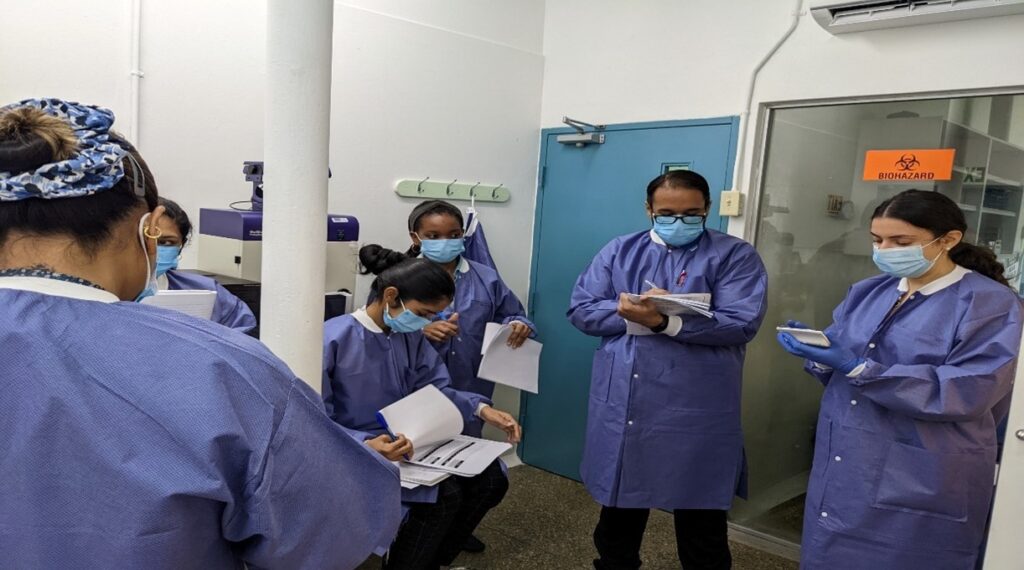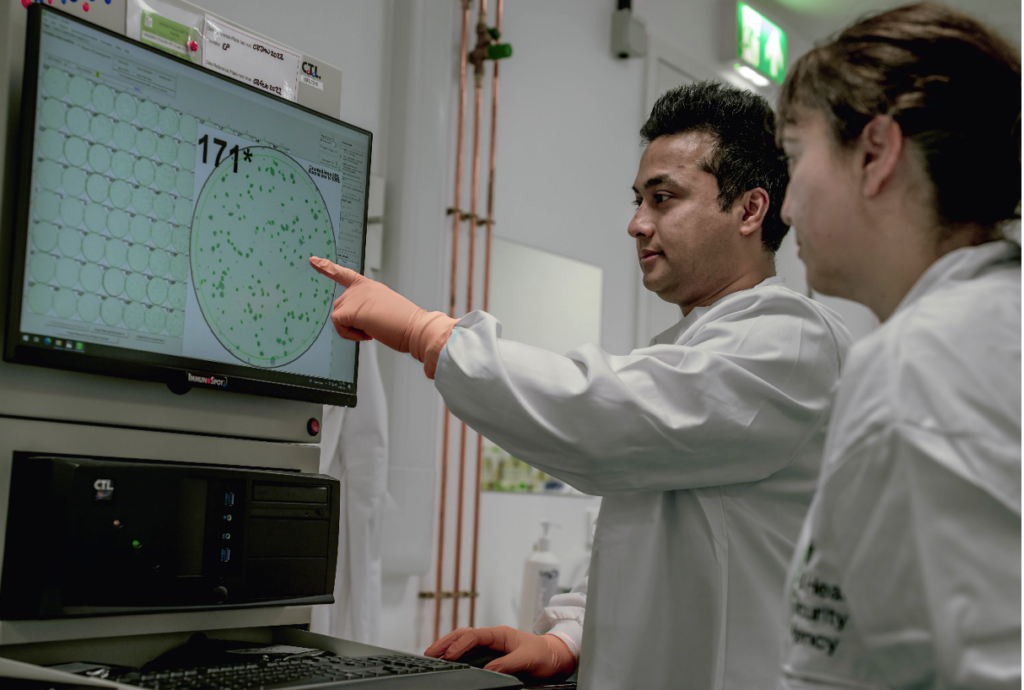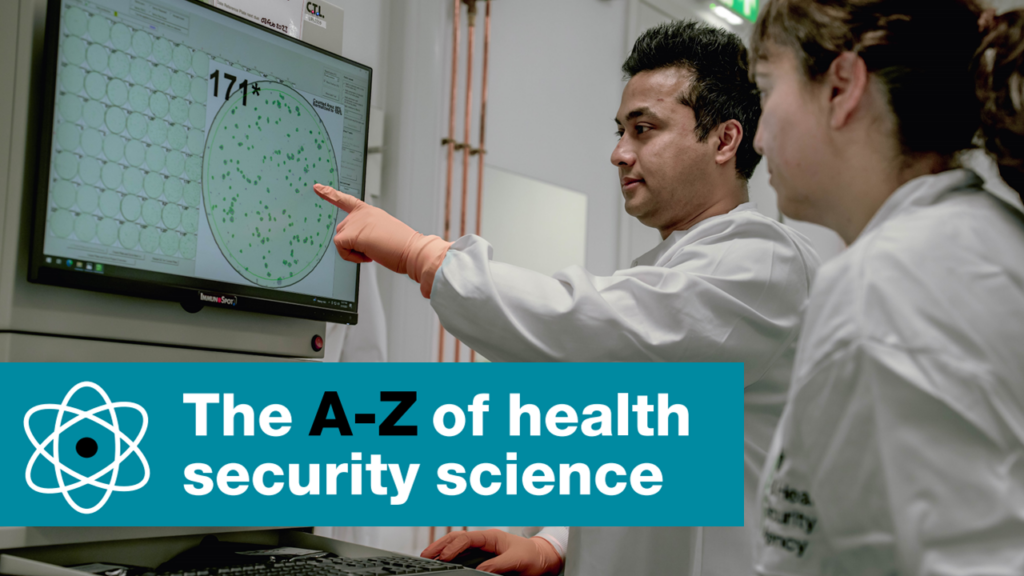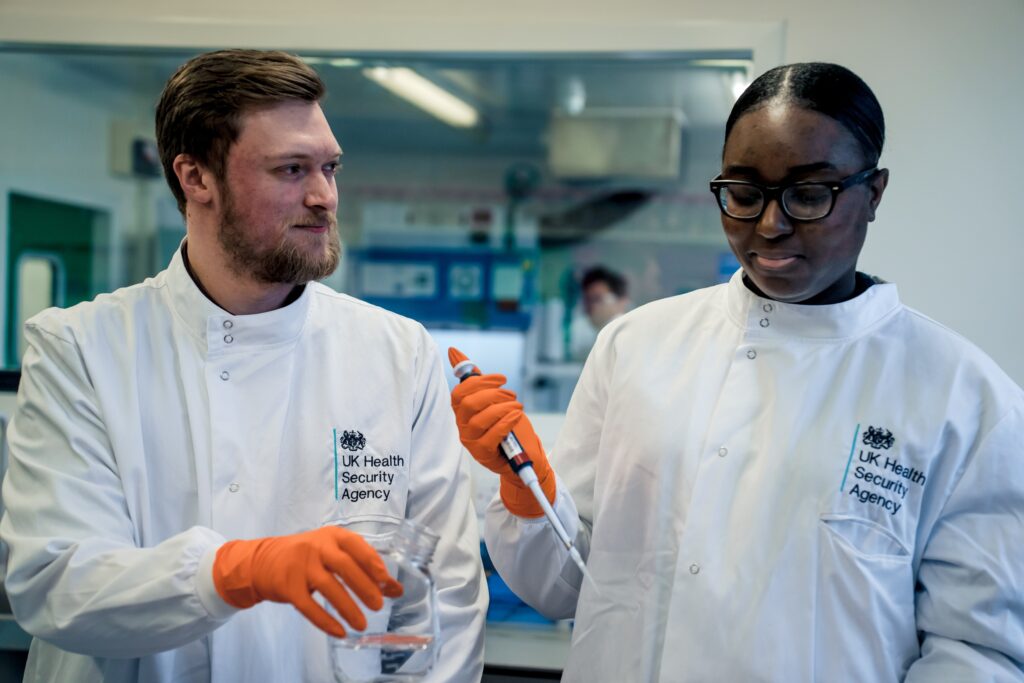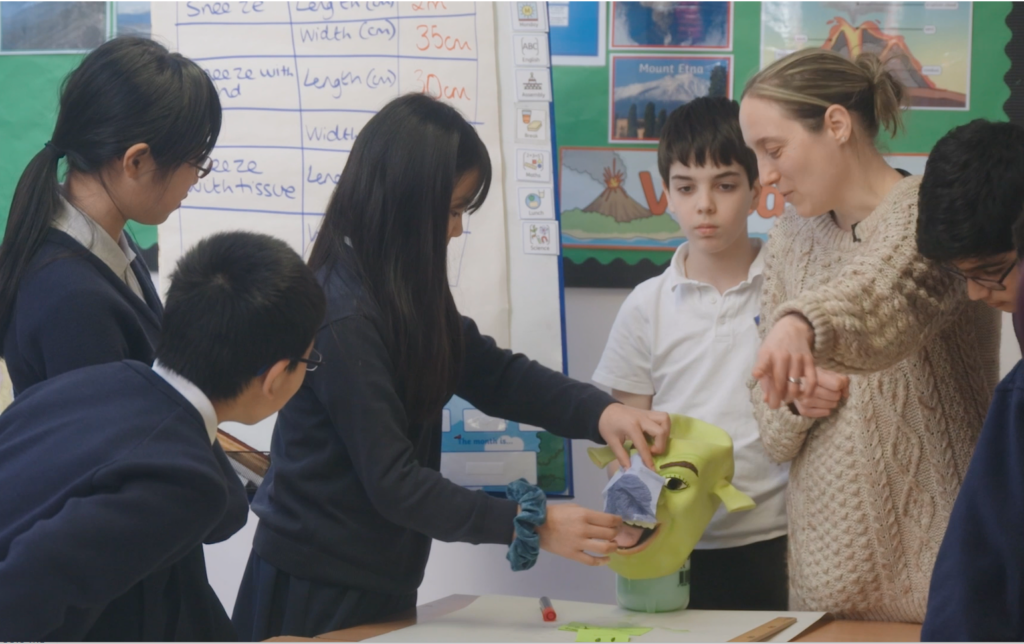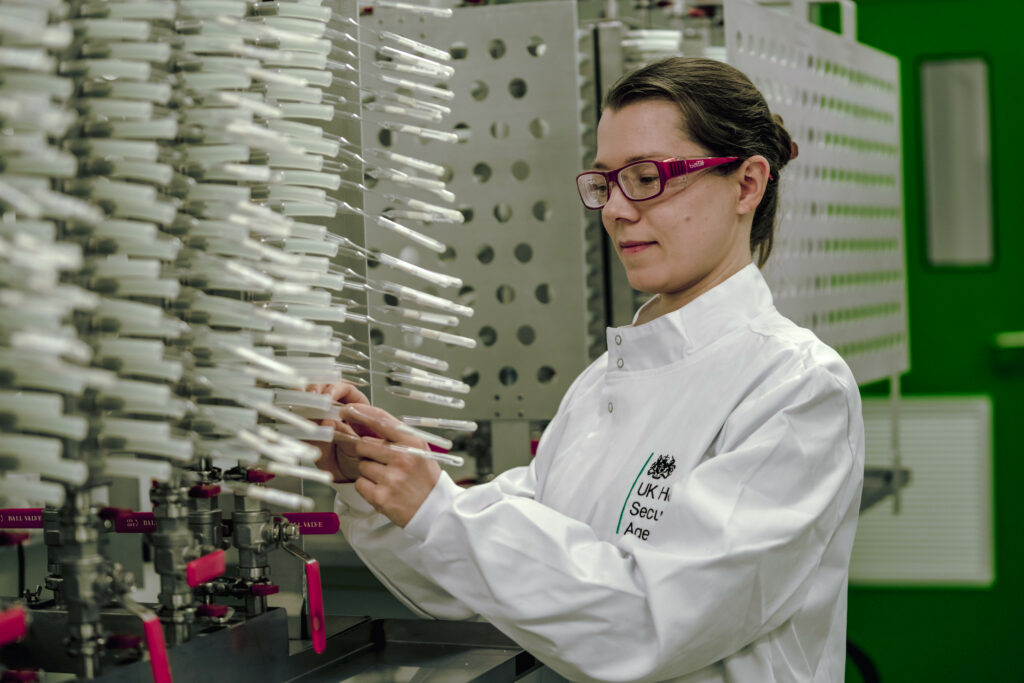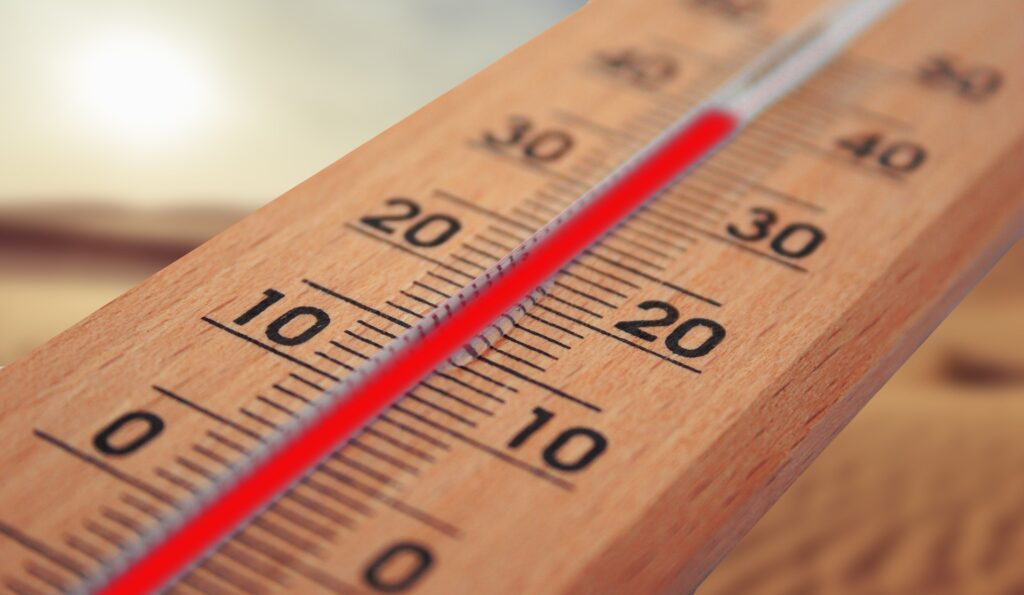UKHSA science
The 100 Days Mission is a global initiative launched in 2021 to ensure that key interventions we have to defeat pandemics can be deployed equitably within 100 days of recognising a new threat. Speed is of the essence in a pandemic, but the initiative is committed to equity, resilience and security on a domestic and …
UKHSA's Vaccine Development and Evaluation Centre (VDEC) brings together our combination of expertise and facilities – often rare or unique in the UK and worldwide – from our ability to safely handle the world’s most dangerous pathogens through to our quality-systems which mean the data we generate is trusted by national and international regulators.
Adverse weather matters for our health. There is a strong evidence base showing us that periods of very hot or cold weather or flooding present a wide range of direct and indirect health risks.
What do you know about the science that goes on at UKHSA? There’s often much more than meets the eye. Read our A-Z to learn more about health security science and the diverse and multidisciplinary science taking place at UKHSA.
At UKHSA science powers everything we do so I’m delighted to announce the publication of a new science strategy setting out how we will harness the power of our science to secure health and prosperity over the next decade. The strategy highlights how UKHSA’s science can save more lives, secure major public health victories and …
This year’s British Science Week theme is “connections” and throughout the week we’re looking at how UKHSA science is carried out in partnership with a wide range of organisations. In this blog Ginny Moore – an expert in applied environmental microbiology research - looks at our work to help hospitals prevent the spread of infections …
Throughout British Science Week we are exploring this year’s theme of ‘connections’ by showcasing some of the vital partnerships that underpin UKHSA’s work. In this blog we look at our partnerships with academia through the National Institute for Health and Care (NIHR) Health Protection Research Units (HPRUs).
This year’s British Science Week theme is “connections” and throughout the week we’re looking at how UKHSA science is carried out in partnership with a wide range of organisations. In this blog UKHSA’s Donna Lecky and Brieze Read discuss partnering with schools through our e-Bug programme which educates young people on infection, prevention and control …
This year’s British Science Week theme is “connections” and throughout the week we’re highlighting how UKHSA science is carried out in partnership with a wide range of organisations. In this blog UKHSA Chief Scientific Officer Isabel Oliver looks at how these partnerships can benefit both health and society.
The start of each year is a time where we recall the previous year and anticipate the year ahead, and there’s much to reflect on. For climate scientists, there’s no doubt that 2022 was remarkable.
